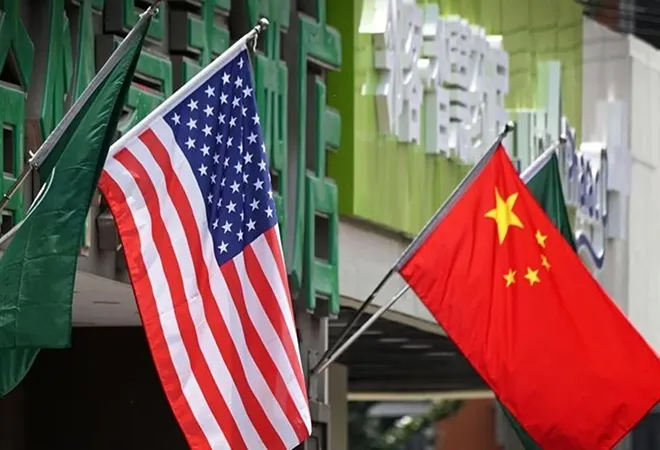-
CENTRES
Progammes & Centres
Location

US treasury secretary Janet Yellen is scheduled to visit Beijing in July, even as Washington’s economic bureaucracy is in the process of rolling out financial restrictions that may constrict the flow of American capital into China.The issue of Taiwan is not out of the woods yet and will continue to be the bone of great power contention. Taiwan figured prominently during Blinken’s talks with Wang Yi, who helms CPC’s Central Foreign Affairs Office. Wang underlined that national unity was the “core of core interest and that it was also the CPC’s national mission”. He also underscored that the US must oppose Taiwan’s independence. Blinken emphasised the importance of maintaining peace across the Taiwan Strait, affirming that there was no change in the American position. The Taiwan Relations Act mandates the US government to come to the defence of the island, and resist attempts by Beijing to change the status quo. Among the six assurances given to Taiwan are that the US would not ask the island to negotiate with China about its future, and that there would be no cut-off date for ending the sale of arms. Thus, we must evaluate these objections by China in light of Xi’s threats that “(On Taiwan) China will not renounce the use of force.” Other questions that have the potential to upset the putative China-US thaw are linked to whether incumbent vice-president Lai Ching-te, who earlier took a strong position on Taiwan’s independence, wins re-election. There are other landmines in America’s backyard, in the form of China’s tightening embrace of Cuba. On the back of reports highlighting the construction of facilities in Cuba that enable Beijing to collect electronic intelligence, it has now emerged that Chinese telecom majors such as Huawei are bolstering snooping facilities. More damaging for the US is China’s design to build an installation to house People’s Liberation Army personnel on America’s door. While the Biden administration has reportedly opened lines of communications with the Cubans, hoping to get the deal nixed, the issue of China’s expanding footprint in America’s backyard has the potential of snowballing into an important issue ahead of the US presidential election. Meanwhile, neighbouring Honduras was rewarded with a sweetheart trade deal by Beijing for switching diplomatic allegiances a few months ago. If other dominoes continue to fall in America’s backyard, it can certainly feed into the US political debate on America’s decline. New Delhi’s response to Chinese belligerence has been to partner with the US, Australia and Japan. But given that India is alone in this quartet to share a land border with China, how America counters Chinese ingress in its backyard will be an important touchpoint in crafting its future approach.
The views expressed above belong to the author(s). ORF research and analyses now available on Telegram! Click here to access our curated content — blogs, longforms and interviews.

Professor Harsh V. Pant is Vice President – Studies and Foreign Policy at Observer Research Foundation, New Delhi. He is a Professor of International Relations ...
Read More +
Kalpit A Mankikar is a Fellow with Strategic Studies programme and is based out of ORFs Delhi centre. His research focusses on China specifically looking ...
Read More +